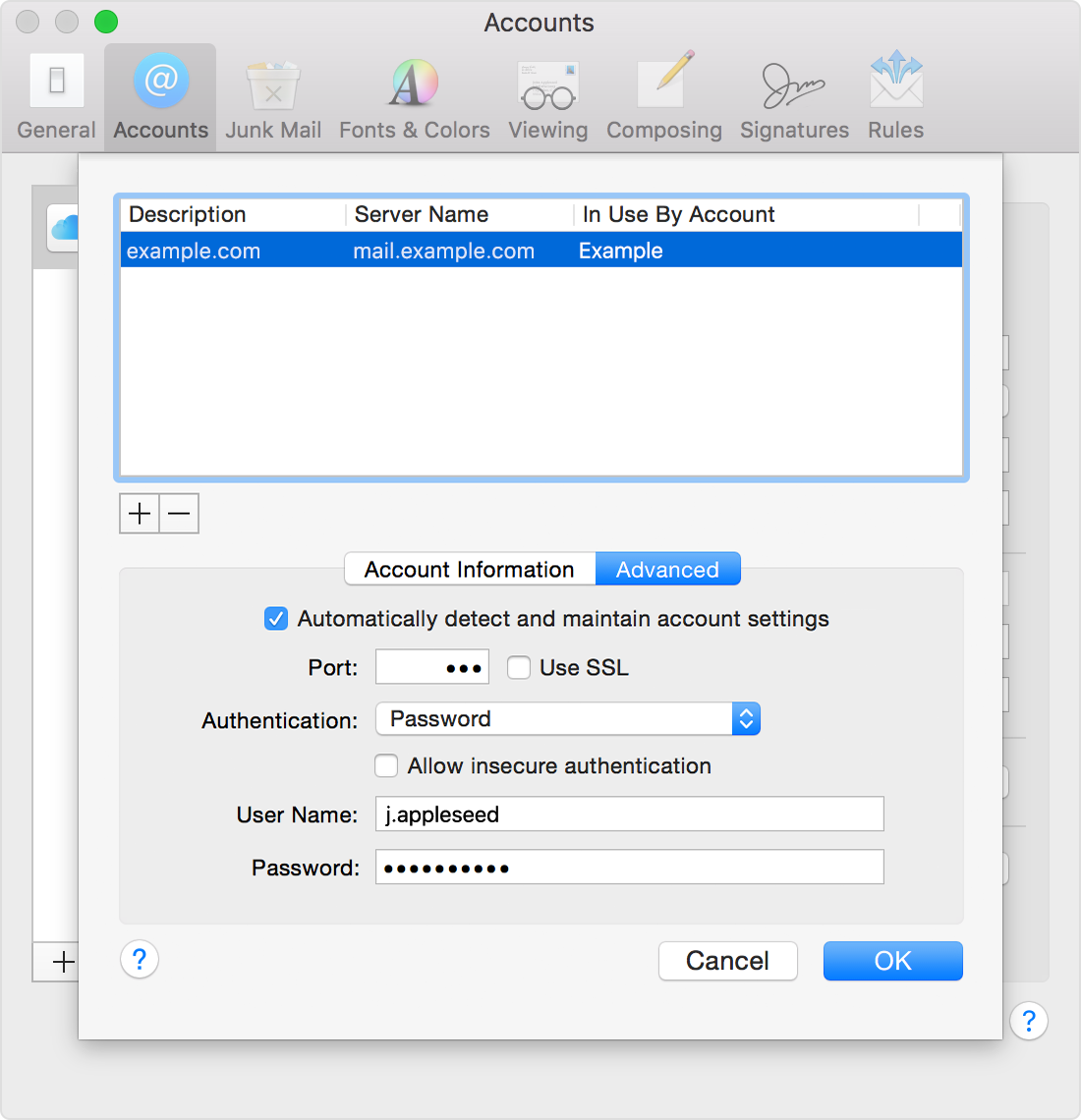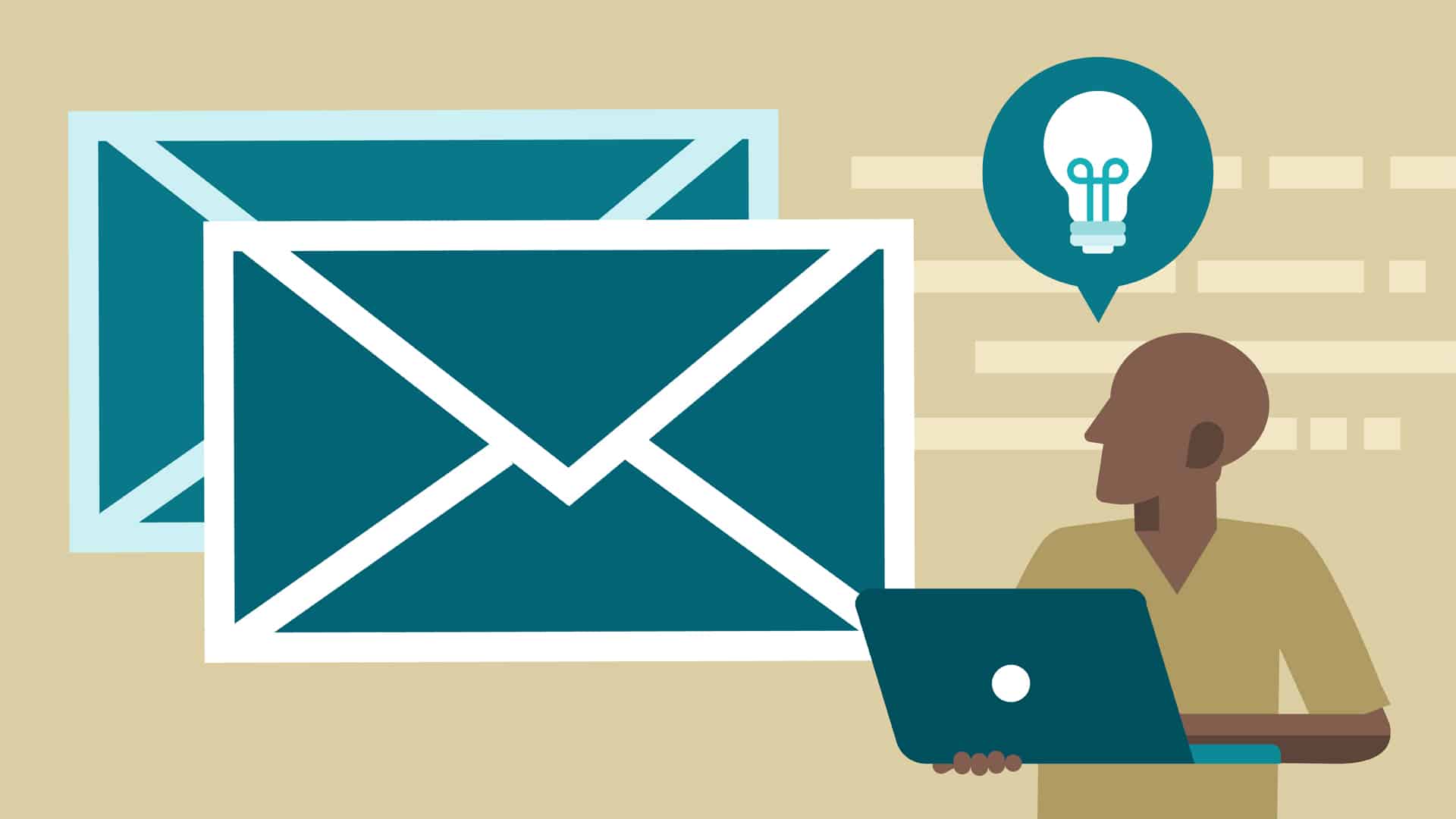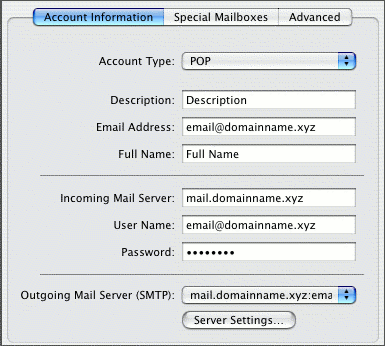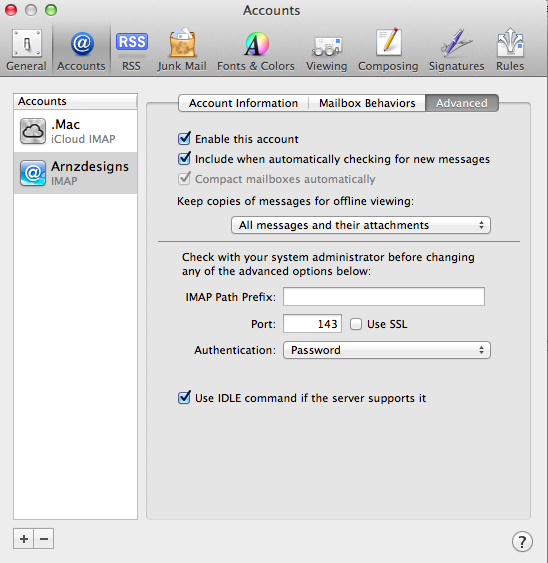
Mail User Guide
Use Server Settings preferences in Mail to change options for an account’s incoming and outgoing (SMTP) mail servers.
In order to add your email account to Outlook, Outlook on the web, Outlook.com, or the Mail and Calendar apps for Windows 10, you'll need several pieces of information including the type of account, the incoming and outgoing server names, and the SSL and port settings. In the E-mail address box, type your Windstream email address, and then click Next. In the E-mail Server Names box, choose IMAP in the dropdown for the incoming mail server type. Use imap.windstream.net for the incoming mail. Use smtp.windstream.net for the outgoing mail and click Next. In Mail, you can’t change an email account from POP to IMAP. Instead, you need to create a new account. Choose File - Add Account, and enter the information that you obtained in step 3 above.
To change these preferences in the Mail app on your Mac, choose Mail > Preferences, click Accounts, then click Server Settings.
Note: The settings you see vary depending on your account type.
Incoming mail server settings
Option | Description | ||||||||||
|---|---|---|---|---|---|---|---|---|---|---|---|
User Name | Your user name on the mail server. | ||||||||||
Password | Your password on the mail server. | ||||||||||
Host Name | The name of the mail server. | ||||||||||
Automatically manage connection settings | Mail automatically manages settings for your email account in Mail, such as port numbers and authentication methods. If you deselect this option, you can specify the following, as directed by your email account provider:
| ||||||||||
Advanced IMAP or Exchange Settings | Enter or change these settings as directed by your email account provider:
| ||||||||||
Outgoing mail server (SMTP) settings
Option | Description | ||||||||||
|---|---|---|---|---|---|---|---|---|---|---|---|
Account | The account of the mail server. To change outgoing server settings, as directed by your email account provider, click the Account pop-up menu, then choose Edit SMTP Server List. | ||||||||||
User Name | Your user name on the mail server. | ||||||||||
Password | Your password on the mail server. | ||||||||||
Host Name | The name of the mail server. | ||||||||||
Automatically manage connection settings | Mail automatically manages settings for your email account in Mail, such as port numbers and authentication methods. If you deselect this option, you can specify the following, as directed by your email account provider:
| ||||||||||
If you change settings, click Save to save your changes.

IMAP is the mail protocol that allows you to delete a message one place and have it delete everywhere else. iCloud uses IMAP, so it should be working. If the messages never delete, then something may be incorrect in the settings. The easiest thing to do with iCloud is to logout of the account on every device, and then login again. (Another common problem with iCloud email is people often have two Apple IDs, and thus may have two iCloud email accounts. If you get confused about which one you're using, you may think you've deleted email when you actually haven't.)

If the iCloud messages do ultimately delete across all devices, then it could be that some devices aren't set to 'Push' but are instead set to 'Fetch' the newest info from the server. Fetch can be set to as long as an hour between check-ins.

Windstream Email Port Settings
The same holds true for Windstream if she's using an IMAP account there, too. If it's a POP account, then deleting a message one place will never delete it anywhere else—that's the way POP works.
Windstream Outgoing Mail Server Settings
Sep 21, 2014 7:30 AM